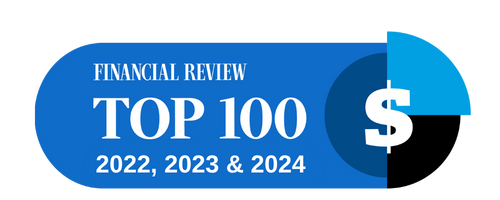As a doctor or other medical professional looking to purchase a home, you may qualify for specialised home loans designed specifically for doctors. These unique financial products cater to the distinct needs and circumstances of healthcare professionals like yourself. We specialise in assisting doctors to secure these loans, which can offer a range of enticing benefits. In this guide, we address some of the most common questions we receive about these specialty loans.
Why do doctors qualify for special home loans?
Medical professionals are often considered low-risk borrowers by lenders due to several factors:
- Stable Income: Doctors typically have stable and high-income levels, which makes them less likely to default on their mortgage payments.
- Career Prospects: The demand for healthcare services remains strong, ensuring steady employment opportunities for medical professionals.
- Professional Status: Lenders view doctors as reliable borrowers due to their extensive education, training, and commitment to their profession.
- Future Earnings Potential: With the potential for career advancement and higher salaries, doctors are seen as having strong future earning potential, reducing the risk for lenders.
Additionally, many lenders offer special home loan products for doctors as a way to attract and retain these high-value clients. These products often feature competitive interest rates, flexible borrowing options, and tailored repayment structures designed to accommodate the unique financial circumstances of medical professionals.
Who is eligible for home loans for doctors?
Home loans for doctors are typically available to most medical professionals including:
- General Practitioners (GPs)
- Specialists (Surgeons, Physicians, etc.)
- Pharmacists
- Veterinarians
- Dentists
- And other allied health professionals
Lenders may require proof of your professional qualifications and employment status to verify eligibility. Additionally, some lenders may have specific requirements regarding the number of years you’ve been practicing or your income level.
Does my partner need to be a medical professional too?
The short answer is generally, no. Many lenders offer home loans tailored to doctors regardless of their partner’s profession. However, having a dual-income household with a partner in a stable profession can strengthen your overall financial position and increase your borrowing capacity.
What deposit will I need for a doctor home loan?
The deposit requirements for home loans for doctors can vary depending on the lender and the specific loan product. While some lenders may offer 100% financing options without requiring a deposit, it’s generally advisable to have a deposit of at least 5-10% of the property’s purchase price. A larger deposit can help you secure a more favorable interest rate and reduce your overall borrowing costs.
As one of our initial steps in assisting you with obtaining a home loan tailored for doctors, we will help you understand your borrowing capacity and the deposit prerequisites associated with the diverse range of loans available to you, with your unique financial circumstances in mind.
What’s the big deal about avoiding LMI?
One of the significant advantages of doctor home loans is the potential to avoid Lenders Mortgage Insurance (LMI). LMI is a type of insurance that lenders typically require when borrowers have a deposit of less than 20% of the property’s value. This insurance protects the lender in case the borrower defaults on the loan.
However, many doctor home loan products allow medical professionals to borrow up to 95% of the property’s value without requiring LMI. This can result in substantial savings, as LMI can add thousands of dollars to the cost of your loan. By avoiding LMI, doctors can potentially access higher loan amounts and purchase their desired home sooner.
Should I apply for a fixed or variable rate loan?
In these days of interest rate fluctuations, choosing between a fixed or variable rate loan depends on your personal preferences and financial goals. A fixed-rate loan offers the stability of a consistent interest rate for a predetermined period, typically ranging from one to five years. This can provide peace of mind, knowing that your repayments won’t change regardless of fluctuations in the market.
On the other hand, a variable rate loan’s interest rate may fluctuate in response to changes in the official cash rate set by the Reserve Bank of Australia and other economic factors. While variable rate loans may offer the potential for lower interest rates and increased flexibility, they also carry the risk of higher repayments if interest rates rise.
Ultimately, the decision between a fixed or variable rate loan depends on your risk tolerance, financial situation, and outlook on interest rate movements. Some borrowers may opt for a combination of both fixed and variable rate loans to hedge against interest rate fluctuations.
We will always discuss the options with you depending on your circumstances and help to guide you as to the best loan type for you.
There are many specialised doctor home loan options on the market, so deciding which is best for you can be a minefield. It’s important to work with a broker who has built deep relationships with the lenders who offer these products and who can negotiate with them to get the best deal for you.
We regularly work with doctors and other medical professionals to help them fund their dream home. If you would like to know more or find out how our team can assist with your property purchase plans, please contact the Walshs Mortgage Broking team to book a meeting or call 07 3221 5677.











